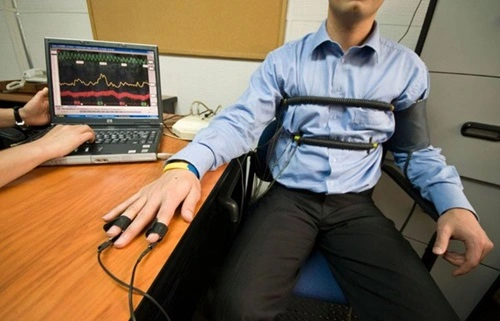The answer is Yes, but with restrictions. Narco tests, also known as truth serum tests, are legal in India under specific conditions, provided they are conducted with the consent of the individual and under judicial supervision. However, the results of narco tests are not admissible as primary evidence in court and are primarily used as an investigative tool by law enforcement agencies.
What is a Narco Test?

A narco test involves administering a drug, such as sodium pentothal, to lower a person’s inhibitions and make them more likely to reveal information. The individual is put into a hypnotic or semi-conscious state, during which investigators pose questions to elicit truthful responses. While it is not a foolproof method, the narco test is believed to assist in uncovering facts that a suspect may otherwise withhold.
Legal Framework Governing Narco Tests in India
- Supreme Court Ruling (Selvi & Ors vs. State of Karnataka, 2010)
The Supreme Court of India laid down clear guidelines regarding narco tests in this landmark judgment:- Consent is Mandatory: Narco tests cannot be conducted without the voluntary consent of the individual.
- Judicial Authorization: The test must be approved by a magistrate to ensure it is not misused.
- Right Against Self-Incrimination: The court reiterated the protection under Article 20(3) of the Constitution, which states that no person accused of an offense shall be compelled to be a witness against themselves.
- Results as Evidence: Information obtained during a narco test is not admissible as evidence in court. However, it can lead to the discovery of material evidence, which may be admissible.
- Human Rights and Privacy
The use of narco tests raises significant concerns about human rights and the right to privacy. Any coercion to undergo such tests would violate an individual’s fundamental rights under Article 21 (Right to Life and Personal Liberty) of the Indian Constitution.
When Are Narco Tests Conducted?
Narco tests are typically employed in cases where:
- The accused or suspect is unwilling to cooperate with the investigation.
- Critical information related to a heinous crime, such as murder, terrorism, or organized crime, is sought.
- There is a need to verify contradictory statements or gather leads for further investigation.
Process for Conducting a Narco Test
- Consent
- The individual must provide written consent to undergo the test.
- The consent must be given freely, without any coercion or undue influence.
- Judicial Approval
- Law enforcement agencies must seek permission from a magistrate.
- The magistrate ensures that the test is necessary and conducted in a fair and transparent manner.
- Medical Supervision
- The test is conducted by qualified medical professionals in a hospital or forensic lab.
- The individual’s health is monitored throughout the procedure to ensure safety.
Admissibility of Narco Test Results
- Primary Evidence: Statements made during a narco test are not admissible in court as they are considered involuntary and may not reflect the whole truth.
- Secondary Evidence: Leads or clues obtained during a narco test can be used to gather corroborative evidence, which may be admissible.
For example, if a suspect reveals the location of a weapon during the test, the weapon itself can be presented as evidence in court.
Ethical and Legal Concerns
- Accuracy and Reliability
- Narco tests are not always reliable. A person under the influence of the drug may provide false, misleading, or fabricated information.
- Human Rights Violations
- Coercive use of narco tests violates an individual’s right against self-incrimination and their right to privacy.
- Risk of Abuse
- Without strict judicial oversight, there is a risk of misuse by law enforcement agencies to extract confessions or incriminate individuals unlawfully.
Recent Developments and High-Profile Cases
Narco tests have been used in several high-profile cases in India, including:
- Aarushi Talwar Murder Case: Narco tests were conducted on suspects to gather leads.
- Nithari Serial Killings: The accused underwent narco tests to reveal details about the crimes.
- Sheena Bora Murder Case: Narco analysis was employed to uncover critical information.
Despite their use, courts have consistently emphasized the need to uphold individual rights and follow due process.
Conclusion
Narco tests are legal in India but are subject to strict conditions, including voluntary consent and judicial authorization. While they can aid investigations by providing leads, the results are not admissible as primary evidence in court due to concerns over their reliability and the risk of violating fundamental rights. The use of narco tests must be carefully balanced to ensure that justice is served without compromising the rights and dignity of individuals.
Hina Abbasi is Editor and a passionate sports and entertainment content writer at WinnersMaze.com. Hina’s expertise spans across a wide range of sports, and interest in many TV shows allowing her to deliver insightful analysis and compelling stories that resonate with readers.

